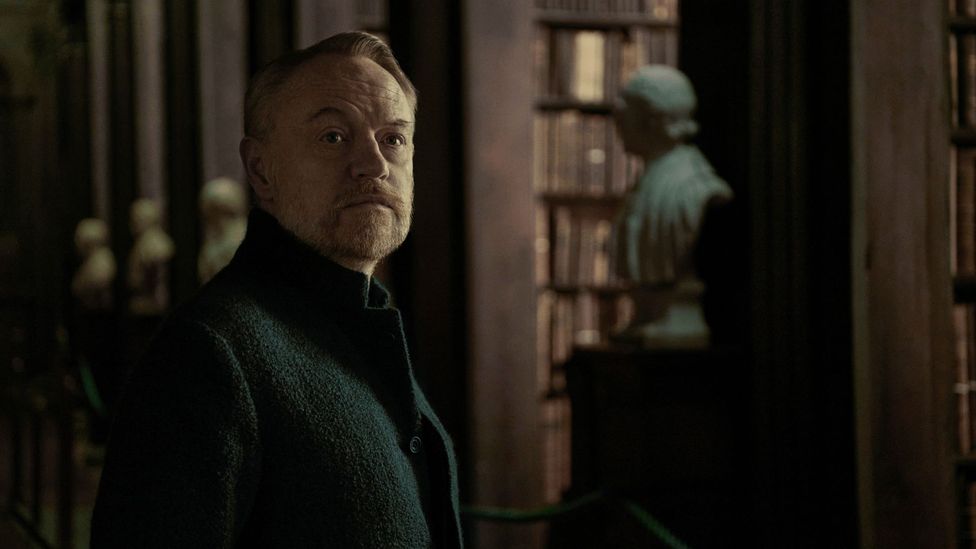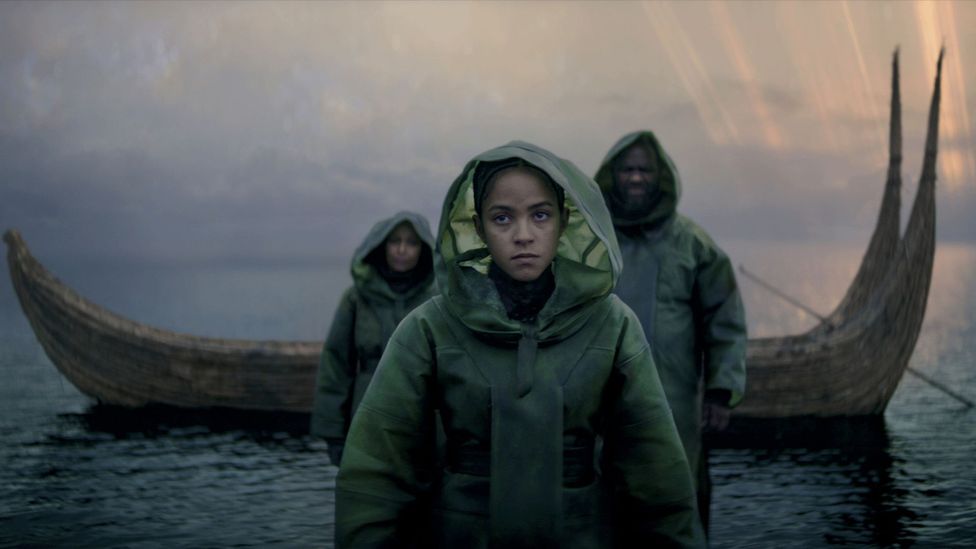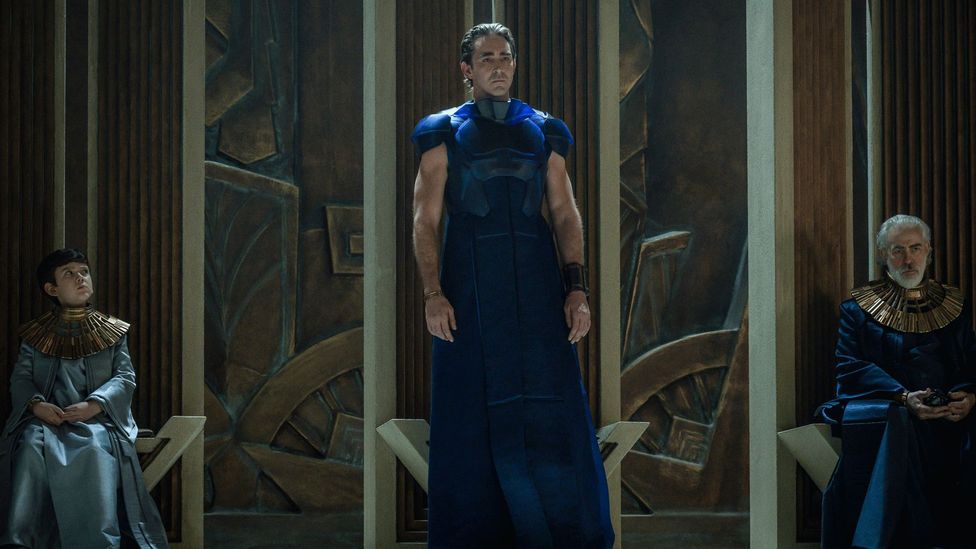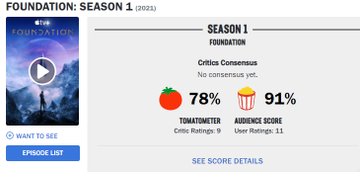"In the 1960s, the Foundation Trilogy was featured as a bonus by the Science Fiction Book Club. A big, thick hardcover, it came free to subscribers and introduced a great many readers to science fiction. In time, it was judged the greatest SF trilogy of the age. It's influenced everything from later galactic empires – including Star Wars – to television [shows] like The Expanse."
Fans of Foundation include Elon Musk, who placed a copy of the original trilogy onboard the David Bowie-playing Tesla Roadster launched into space in 2018. Prominent Republican politician Newt Gingrich used to encourage his staff to read the books. The award-winning economist Paul Krugman has said that "economics is as close to psychohistory as you can get".
Its influence has not been entirely benign. The Japanese doomsday cult Aum Shinrikyo, responsible for the 1995 terror attack on the Tokyo subway that claimed 13 lives, believed they were going to rebuild the world after a coming apocalypse with a community of scientists modelled on Hari Seldon's Foundation. It has even been speculated that
Osama bin Laden read the books – al-Qaeda can be translated as 'foundation'. However, the vast majority of readers have understood that Asimov's message is ultimately one of hope about the future of humanity.
The character of Gaal Dornick, a gifted young mathematician, has become a woman, played by Spanish actor Lou Llobell (Credit: Alamy)
Goyer was introduced to Foundation on his 13th birthday when given a copy of the original trilogy by his father, with whom he had a troubled relationship. Many years later, his terminally ill father asked Goyer – by then the screenwriter of the Blade trilogy and collaborator with Christopher Nolan on the Dark Knight trilogy – if he'd done anything right as a parent. "You instilled in me a love for science fiction and fantasy, and I've gone on to build a career around that," Goyer told him. One of the last things they ever discussed was whether Goyer would get the opportunity to film Foundation, which his father regarded as the greatest work of science fiction.
So, when Goyer was told four years ago that the rights were once again in play, he took the night to think about it but his answer was never really in doubt. He pitched it to Apple TV+ as "a 1,000-year chess game between Hari Seldon and the Empire… All of the other characters are being utilised as pawns by one side or the other. But in chess, if a pawn makes it to the opposing side, it becomes a queen, and those shifting power dynamics can happen in our story." And part of the solution to the problems presented by the complexity and scale of the work is to tell the story via long-form television – the first season has 10 episodes – rather than to try to compress it into a movie or even a trilogy of movies, as previous attempts have done.
Part of my character's storyline involves the seas on her home planet rising, but the people don't believe in science or in global warming. That denial is something we are dealing with now – Lou Llobell
Goyer has said he hopes the saga can unfold over 80 episodes and several commentators have mentioned Foundation in the context of the race to find the new Game of Thrones, a similarly complicated, sprawling story that ended up running to 73 episodes. "I did pitch eight seasons to Apple," says Goyer. "I know the end point, I know what we're writing towards. I know the fate of all of the characters. In season one there are some story threads that we are laying that will hopefully be answered in future seasons. I'm in it for the long haul. I hope we get there.
However, despite having the luxury of more time to tell the story than he would if he was making it into a film, Goyer has still made significant changes to the source material. These include introducing new concepts such as the "genetic dynasty" – three constantly renewed, differently aged clones of the same man who rules the empire. He has also changed some of the characters. "When the first book was written there were virtually no female characters," he says. "The science fiction audience at the time was mostly male." Several key characters who were men in the books are now women. Dornick, for example, is played by Lou Llobell, selected from almost 500 hopefuls who auditioned. And Leah Harvey is Salvor Hardin, the tough, resourceful Warden of Terminus, a character in the tradition of Ripley from the Alien films or Battlestar Galactica's Starbuck.
The story's relevance to now
Harvey has considerable classical theatre experience, having performed Shakespeare and other playwrights, sometimes in relatively small spaces. But working on a huge science fiction production was not so different, the actor says. "The topics that we look at are very human. It's about people not wanting to give up their power and people gaining power and people having power thrust upon them. These are all things that we experience in our lives. These aren't alien concepts."
Llobell, a virtual newcomer with just one previous production under her belt, and who Goyer calls "a phenomenal discovery", agrees. "It [Foundation] being sci-fi is obviously a massive, massive part of it but I do think that fundamentally the storylines and the characters are authentic and real and human, most importantly," she says. "So it's completely relatable and I think we can see parallels to the world we live in today. Part of Gaal's storyline involves the seas in Synnax, her home planet, rising but the people of Synnax don't believe in science or in global warming. I think that [denial] is something we are dealing with now with the environment."
The production of the first series was vast, with 50 artists designing 170 sets, 13 different types of space-craft and six different planets (Credit: Apple TV+)
Indeed, Goyer was determined to make this adaptation feel as pertinent as possible, by weaving in very contemporary-feeling themes. "Asimov was doing the same thing," he says. "He wasn't writing about the distant future. He was writing a post-World War Two environment. He was talking about Nazi Germany. He was talking about being a Jew who had emigrated from Russia. He was talking about the old empires of Europe collapsing and the ascendancy of America. The first thing I said to the Asimov Estate is that Asimov crafted Foundation to be a mirror so I need to write about what's happening now. I need to write about Brexit, MeToo, the ascent of nationalism again. I need to write about climate change."
The series depicts religious and political extremism, mistrust of established leaders, suspicion of science – issues you will see reflected every day in the pages of any newspaper. "We are talking about what's happening today but through the tinted glass of the future," says Goyer. "Asimov's message in Foundation was fundamentally a message of hope and I felt that was a message that the world could use right now – faith in human ingenuity."
The challenge of realising Foundation's vision
There are more than 100 characters in the cast and auditions were held in 17 cities around the globe. Much of the filming was done at the Troy Studios in Limerick and the show is Ireland's largest ever production, employing more than 500 crew members. Fifty artists worked on designing 170 sets, 13 different types of space-craft and six different planets, each with their own scripted language, and hundreds of carpenters, metalworkers, painters and plasterers realised their vision.
"It was a military campaign," says Goyer. "Especially during the pandemic. We had to keep everyone safe. We had our own Covid testing lab that travelled with us from country to country. Everyone got tested three times a week. We would have to charter flights from country to country. And we were bubbled up. It was 500 to 600 people who didn't interact with anyone else for about eight months so we were incredibly close, but it was difficult.
"Trust me, there were plenty of times when I said: 'Oh my God, what have I gotten myself into?' I'd call my wife from the side of a mountain in Iceland or from the middle of a dust storm in the Canary Islands and just say 'What have I done?'. I had to try to root everyone in emotion because we filmed it all out of order. We might be filming a scene when the preceding scene had literally been filmed 14 months ago in another country, so you have to remind everyone where they are emotionally."
But now, after four years of hard work there are 10 episodes of visually stunning, emotionally engaging, thought-provoking drama. They have already been made available to critics and are so richly layered that they bear an instant rewatch.
The younger cast members have been excitedly tweeting about the show as the launch date approaches. "When we were filming, myself and a lot of the cast would stop in the hallways and talk about the show, as though we were watching it, like 'Can you believe that? I can't believe she did that!'," says Harvey. "It's going to give people a lot to talk about. I can’t wait for people to see it." And what about the prospect of more seasons, as yet unconfirmed? Will Goyer get the chance to continue with his vision? "I can’t speak to that," he says. But he's smiling as he says it.
The first two episodes of Foundation premiere on Apple TV+ on 24 September with episodes arriving weekly thereafter.





